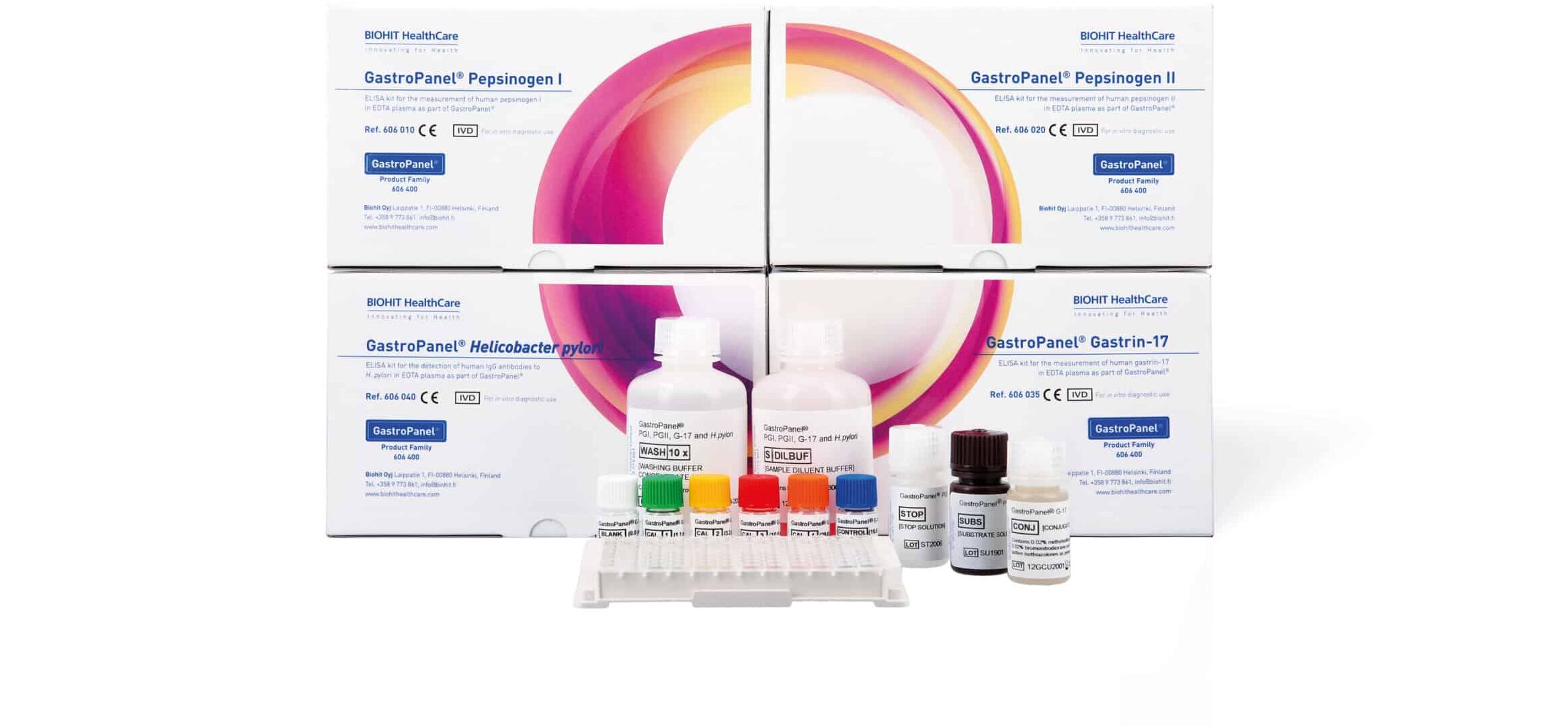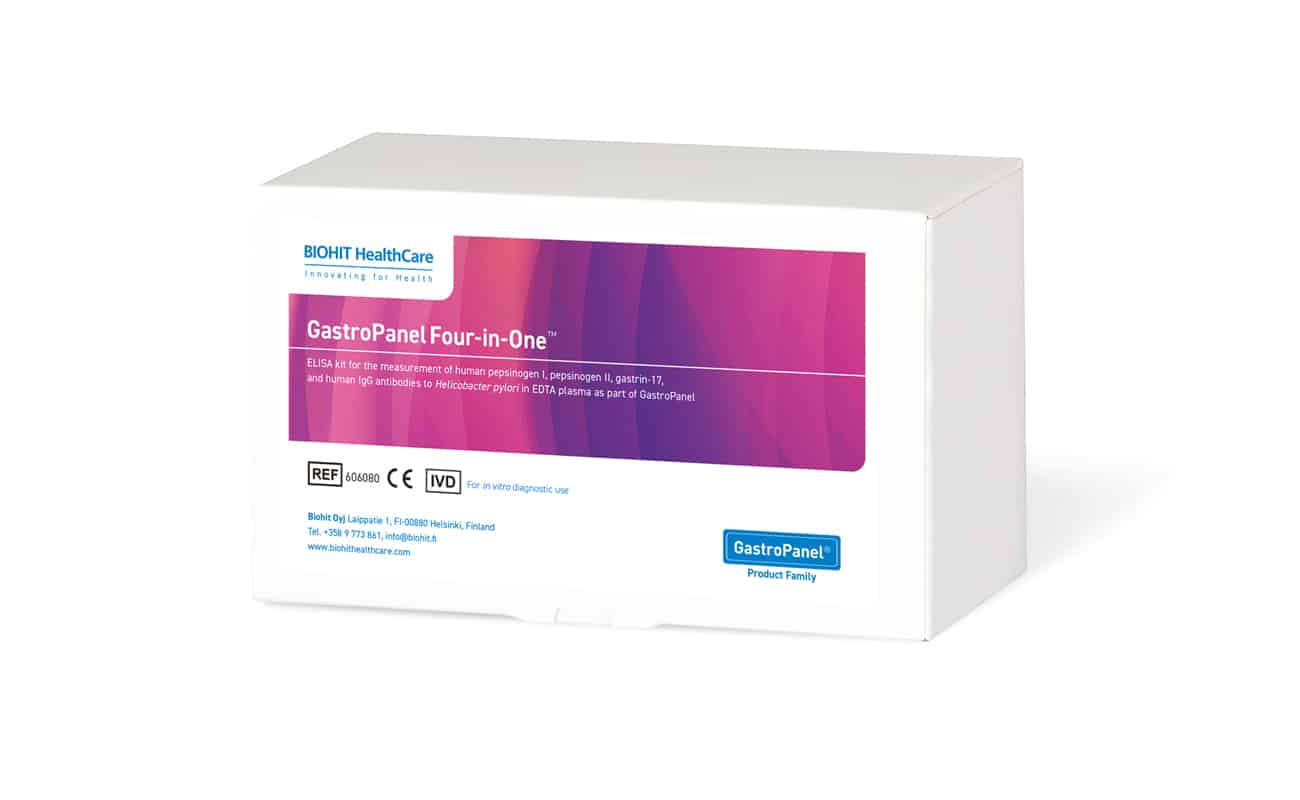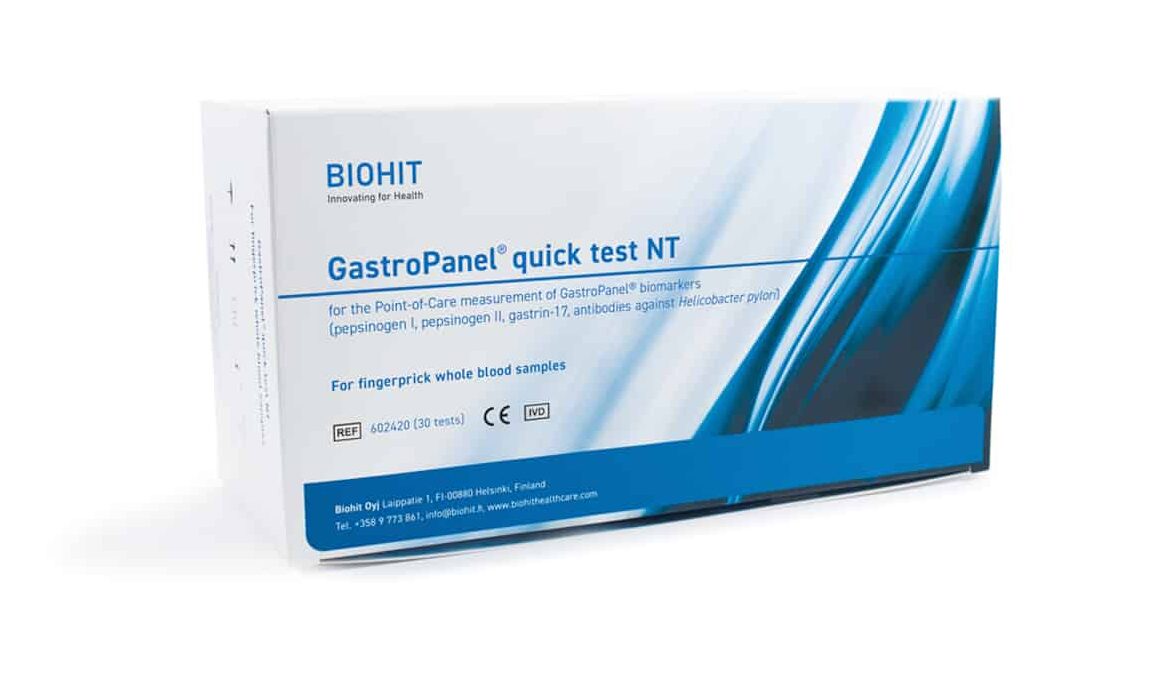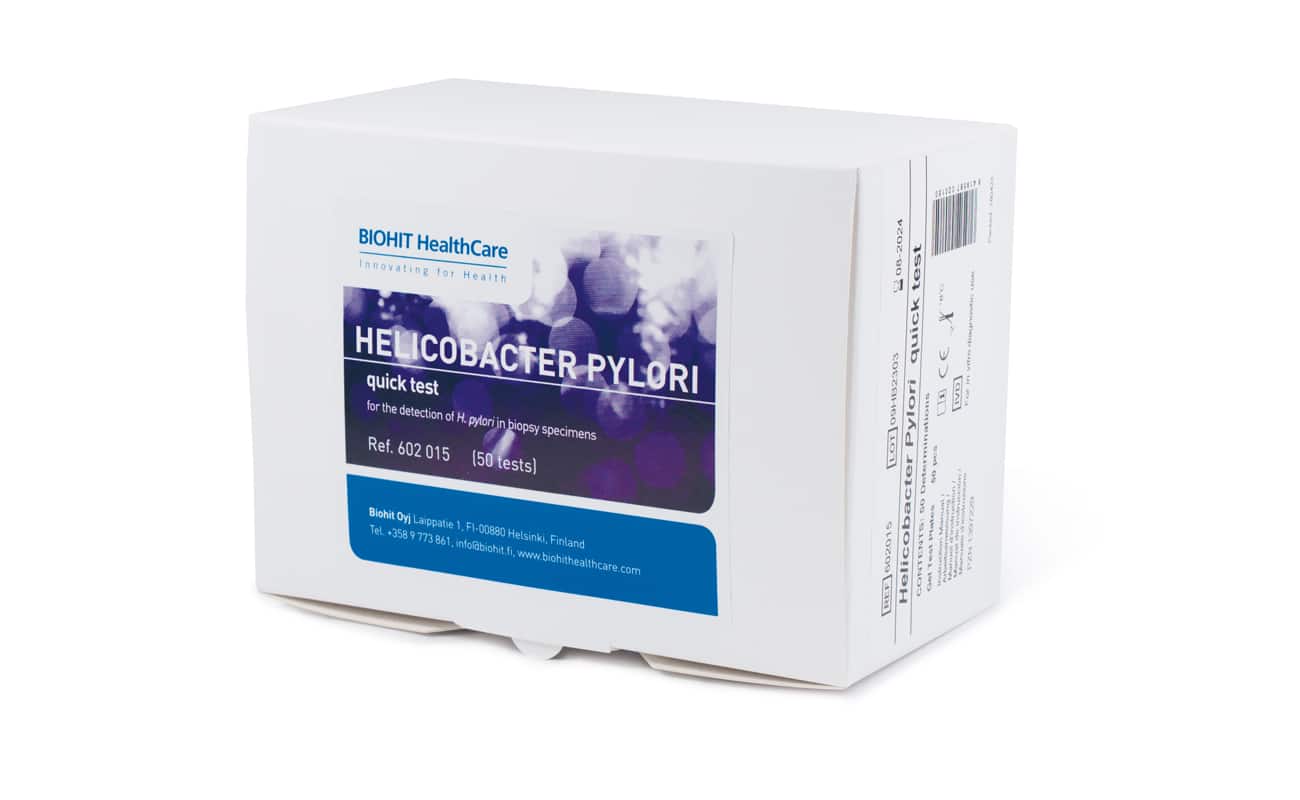Test panel for stomach health check

GastroPanel® is a patient friendly, non-invasive, simple blood test for diagnosis of the function and structure of stomach mucosa. GastroPanel is intended as the first-line diagnostic test of the patients suffering from dyspepsia. It is a particularly useful tool for general practitioners and occupational health doctors, because the results can be used to evaluate the need for further investigations (usually gastroscopy).
GastroPanel detects four biomarkers. Three of these biomarkers are secreted by the cells in gastric mucosa: pepsinogen I (PGI), pepsinogen II (PGII) and gastrin-17 (G-17). These are complemented by Helicobacter pylori antibody measurement. This complete panel of all four biomarkers provides a more comprehensive profile of the gastric mucosa than could be achieved by using any of these as stand-alone biomarkers.
GastroPanel identifies Helicobacter pylori infection and indicates whether chronic infection has progressed to atrophic gastritis. GastroPanel also accurately confirms abnormalities in acid output. Since Helicobacter pylori infection and atrophic gastritis are the most important risk factors for stomach cancer, GastroPanel can also be used for screening of asymptomatic subjects for the risks of gastric cancer.
GastroPanel kits are based on the ELISA (enzyme-linked immunosorbent assay) principle and hence can be used with a variety of analysis equipment (manual or automated). The latest kits feature unified reagents and reaction conditions, making them even more accessible.
| REF | Product | Qty |
|---|---|---|
| 601300 | GastroPanel® | 1 package |
| 601010.01 | Pepsinogen I | 96 wells |
| 601020.02 | Pepsinogen II | 96 wells |
| 601035 | Gastrin-17 Advanced | 96 wells |
| 601040.02 | Helicobacter pylori IgG | 96 wells |
| REF | Product | Qty |
|---|---|---|
| 606400 | GastroPanel® Unified | 1 package |
| 606010 | GastroPanel® Pepsinogen I | 96 wells |
| 606020 | GastroPanel® Pepsinogen II | 96 wells |
| 606035 | GastroPanel® Gastrin-17 | 96 wells |
| 606040 | GastroPanel® Helicobacter pylori IgG | 96 wells |
For more information about the GastroPanel®, please visit www.gastropanel.com
Product brochures
GastroPanel® Brochure
Instructions for use
GastroPanel® IFU
Literature
Meta-analyses:
- Zagari et al 2017 | 20 studies, 4241 patients: Systematic review with meta‐analysis: diagnostic performance of the combination of pepsinogen, gastrin‐17 and anti‐Helicobacter pylori antibodies serum assays for the diagnosis of atrophic gastritis
- Syrjänen 2016 | 27 studies, 8654 patients: A Panel of Serum Biomarkers (GastroPanel®) in Non-invasive Diagnosis of Atrophic Gastritis. Systematic Review and Meta-analysis
Some of the key articles:
- Koivurova et al 2020: Screening of the patients with autoimmune thyroid disease (AITD) and type 1 diabetes mellitus (DM1) for atrophic gastritis AG) by serological biomarker testing (GastroPanel®). EC Gastroenterol Digest Syst.
- Chapelle et al 2020: A panel of stomach-specific biomarkers (GastroPanel®) for the diagnosis of atrophic gastritis: A prospective, multicenter study in a low gastric cancer incidence area.
- Cai et al 2019: Development and validation of a prediction rule for estimating gastric cancer risk in the Chinese high-risk population: a nationwide multicentre study
- Syrjänen et al 2019: GastroPanel® Biomarker Assay: The Most Comprehensive Test for Helicobacter pylori Infection and Its Clinical Sequelae. A Critical Review
- Den Hollander et al 2019: Surveillance of premalignant gastric lesions: a multicentre prospective cohort study from low incidence regions
- Tepes et al 2018: Premalignant Gastric Lesions in Patients Included in National Colorectal Cancer Screening
- Tue et al 2017: A Serological Biopsy Using Five Stomach-Specific Circulating Biomarkers for Gastric Cancer Risk Assessment: A Multi-Phase Study
- Benberin et al 2013: Prevalence of H. pylori Infection and Atrophic Gastritis Among Symptomatic and Dyspeptic Adults in Kazakhstan. A Hospital-based Screening Study Using a Panel of Serum Biomarkers
- Agreus et al 2012: Rationale in diagnosis and screening of atrophic gastritis with stomach-specific plasma biomarkers
- Storskrubb et al 2008: Serum biomarkers provide an accurate method for diagnosis of atrophic gastritis in a general population: The Kalixanda study
Supported by the international consensus reports:
- Malfertheiner et al 2017: Management of Helicobacter pylori infection—the Maastricht V/Florence Consensus Report (see page 11)
- Kyoto 2015: Kyoto global consensus report on Helicobacter pylori gastritis (see page 9)
You can find more studies and abstracts from Literature search



